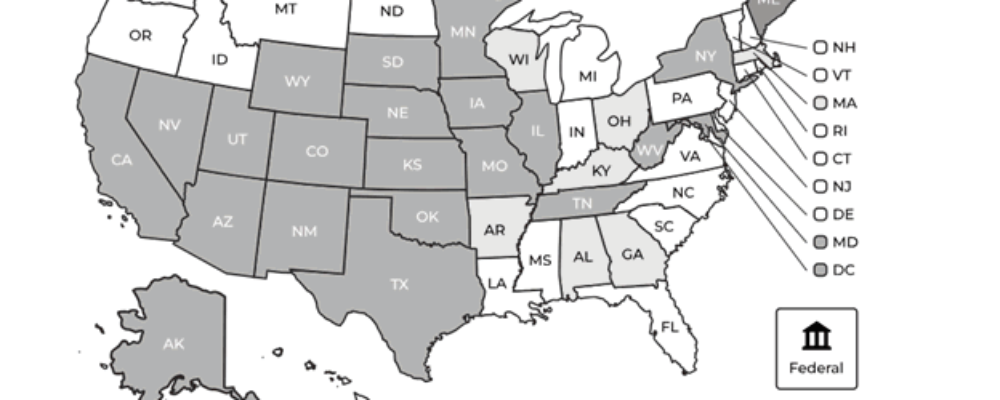Quick Hits
- Washington’s legislature recently concluded a productive 2024 legislative session with approximately 340 bills receiving passage by both houses and moving on to the governor’s desk.
- Notable newly enacted pieces of legislation include a measure that restricts employers’ ability to speak to employees on political or religious matters, a statutory expansion of the classes protected by Washington’s Equal Pay and Opportunities Act, and amendments to the state’s paid sick and safe leave law.
- A law requiring healthcare providers to provide certification of a serious health condition for the purposes of Washington Family and Medical Leave Act benefits will take effect on June 6, 2024.
ESSB 5778 – Ban on Mandatory Employer Meetings
Engrossed Substitute Senate Bill (ESSB) 5778, the “Employee Free Choice Act,” ostensibly “protect[s] the rights of workers exercising their right to refrain from attending meetings or listening to their employer’s speech on political or religious matters.” The law notably defines “political matters” as “matters relating to elections for political office, political parties, proposals to change legislation, proposals to change regulations,” as well as “the decision to join or support any … labor association and organization.” The law further defines “religious matters” as “matters relating to religious affiliation and practice, and the decision to support any religious organization or association.” Governor Inslee signed this bill into law on March 28, 2024, with an effective date of June 6, 2024.
SHB 1905 – Expanded Protections Under the Equal Pay and Opportunities Act
Substitute House Bill (SHB) 1905 expands the scope of the Washington Equal Pay and Opportunities Act (EPOA) to include all protected classes under RCW 49.60.040. The law defines “protected class” as “a person’s age, sex, marital status, sexual orientation, race, creed, color, national origin, citizenship or immigration status, honorably discharged veteran or military status, or the presence of any sensory, mental, or physical disability or the use of a trained dog guide or service animal by a person with a disability.” Governor Inslee also signed this bill into law on March 28, 2024, but it will not go into effect until July 1, 2025.
SHB 2102 – Safeguards for WPFML-Related Healthcare Information
SHB 2102 establishes requirements for the disclosure of healthcare information for workers to receive benefits under the Washington Paid Family and Medical Leave (WPFML) Act. Among other items, it requires healthcare providers to provide certification of a serious health condition for WPFML “within seven calendar days of receipt of a request and authorization from [a] patient.” Governor Inslee signed this bill into law on March 18, 2024, and it will go into effect on June 6, 2024.
SHB 2226 – Data Collection With Respect to H-2A Workers
SHB 2226 authorizes the State of Washington’s Employment Security Department to collect data from workers in the federal immigration H-2A program and certain hand-harvest workers. Whenever the department conducts a field visit of an employer, the department will check the number of H-2A workers on-site and the geographic location where the H-2A workers live. The department will also conduct comprehensive annual wage surveys of non-H-2A workers hand-harvesting apples, cherries, pears, and blueberries. The governor signed this bill into law on March 25, 2024, and it is effective on June 6, 2024.
In addition to taking note of the foregoing initiatives, please see our recent articles on SSB 5935’s changes to the state’s 2019 noncompetition covenant law, RCW 49.62, et seq., and SB 5979’s updates to the paid sick and safe leave law, RCW 49.46.200.
Employment-Related Bills That Did Not Pass the Legislature
Examples of employment-related bills that did not receive legislative approval include the following:
- Amendment to new pre-employment cannabis testing law. HB 2047 would have created an exception to RCW 49.44.240, allowing employers to screen for cannabis use for applicants for certain positions involving services to persons with substance use disorders.
- Unemployment benefits. HB 1893 and SB 7777 would have allowed unemployment benefits for striking/locked-out workers. Also, without the passage of HB 1095 or SB 5109, which would have created a wage replacement program for certain Washington workers excluded from unemployment insurance, unemployment insurance remains unavailable to Washington’s undocumented workers.
- Adding WPFML premiums for small employers. HB 1959 would have required employers with fewer than fifty employees to pay the employer portion of the total premium for WPFML benefits.
- Limits on job-posting claims. HB 2349 would have required applicants to give employers written notice of a violation of the EPOA’s job-posting requirements with a ten-day cure period, and it would have required workers seeking penalties or damages under the law to prove they were bona fide applicants.
- Changes to requirements for personnel files. SB 5924 would have specified items to be included in employer personnel files, changed the deadline for providing files upon request, banned charges for copies of files, and added a private cause of action for failures to properly provide files.
Ogletree Deakins’ Seattle office will continue to monitor developments and will publish updates on the Washington blog as additional information becomes available.
Follow and Subscribe
LinkedIn | Instagram | Webinars | Podcasts
“Ogletree Deakins has experienced professionals in all areas of labour and employment law who provide efficient, client-focused service. We represent employers of all industries and sizes, from small businesses to Fortune 50 companies.”
Please visit the firm link to site






